• FILMS • 2009 •
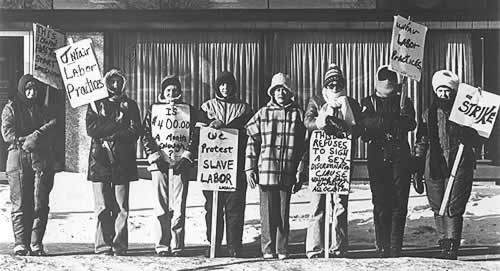
The Willmar 8
(Director: Lee Grant, 1980, 50 min)
The film tells the story of eight unassuming, apolitical women in America’s heartland—Willmar, Minnesota—who were driven by sex discrimination at work to take the most unexpected step of their lives and found themselves in the forefront of the struggle for women’s rights. Risking jobs, friends, family and the opposition of church and community, they began the longest bank strike in American history in a dramatic attempt to assert their own equality and self-worth. This documentary has been featured on the front page of The Wall Street Journal, excerpted on 60 Minutes, and was broadcast nationally by PBS.
Link to California Newsreel webpage on The Willmar 8.
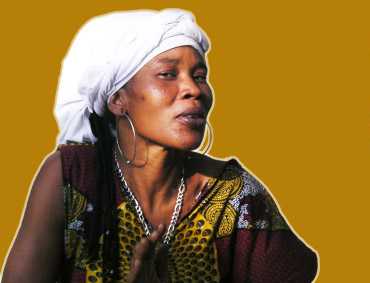
Poto Mitan: Haitian Women, Pillars of the Global Economy
(Directors: Renée Bergan & Mark Schuller, 2009, 52 min)
The compelling lives of five courageous Haitian women workers give the global economy a human face. Each woman’s personal story explains neoliberal globalization, how it is gendered, and how it impacts Haiti: inhumane working/living conditions, violence, poverty, lack of education, and poor health care. While the film offers in-depth understanding of Haiti, its focus on women’s subjugation, worker exploitation, poverty, and resistance demonstrates these are global struggles. Finally, through their collective activism, these women demonstrate that despite monumental obstacles in a poor country like Haiti, collective action makes change possible.
Link to Poto Mitan website.
La Huelga: The struggle of the UFW
(Filmmaker: Alex Ivany, 2009, 18 min)
The legacy of Cesar Chavez and the union movement he inspired.

Workers’ Republic
(Filmmaker: Andrew Freund, 2009, 50 min)
Three weeks before Christmas 2008, in the depths of the economic crisis, Chicago company Republic Windows and Doors told their workforce that the factory was closing shop. Republic executives complained about dwindling sales due to the crash of the housing market. Three days later, when the Republic employees came in to pick up their final paychecks, they were informed that they would not be paid for their final week or receive their accrued vacation pay. Their insurance benefits were cut immediately, and they were denied the 60-day severance guaranteed under the federal WARN Act.
What those workers did next reverberated across the country, reminding the working class it possesses a power long forgotten. They occupied the doomed factory 24-hours a day for six days, declaring they would not leave until they were given what their employer owed them.
For six days in December, the workers and their allies won over the public to their cause. Bank of America, who accepted over $25 billion in federal bailout money, was one of the culprits in the closing of the factory, and the details that eventually leaked out of their involvement shocked even the most ardently anti-corporate activists. This factored heavily into the outpouring of solidarity from all over the country.
Workers’ Republic conveys the courage, the resolve, the creativity, and the solidarity of those window-builders who vowed to stand up for their rights. From the opening moments to the final settlement and culminating in the surprise fate of the Chicago factory, the film commits one of American society’s most grievous sins: speaking in favor of radical action as a solution to exploitation.
Filmmaker and union steward Andrew Freund has assembled the accounts of several of the main fighters in the Republic struggle, including front line workers, the organizers of their tiny union United Electrical, Radio, & Machine Workers, and a few of the thousands of everyday people that supported them through small acts of solidarity. Freund presents a “rough-cut” of the film in progress in this special screening.
Link to Labor Beat news video about Workers’ Republic.
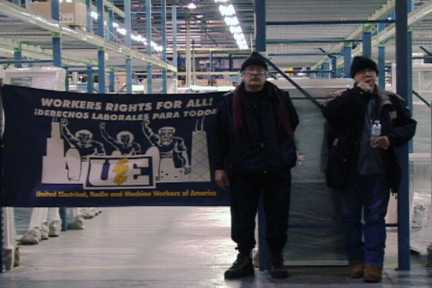
Documentary on the Occupation
(Producer: United Electrical, Radio, & Machine Workers Union, 2008, 20 min)
Video record by UE Union staff of the Republic Door & Window takeover.

The Corporation
(Director: Mark Achbar, 2004, 145 min)
Provoking, witty, stylish and sweepingly informative, this Sundance award-winner explores the nature and spectacular rise of the dominant institution of our time with insightful and compelling analysis. Taking its status as a legal “person” to the logical conclusion, the film puts the corporation on the psychiatrist&rsqou; couch to ask “What kind of person is it?” The Corporation includes interviews with 40 corporate insiders and critics including Noam Chomsky, Naomi Klein, Milton Friedman, Howard Zinn, Vandana Shiva and Michael Moore.
Link to The Corporation website.

Battle In Seattle
(Director: Stuart Townsend, 2008, 98 min)
In 1999, during the World Trade Organization meeting in Seattle, an eclectic group of demonstrators brings the city to a state of near-chaos. Five days rocked the world as tens of thousands of demonstrators took to the streets of Seattle in protest of the WTO. Environmentalists, consumer advocates, labor unions, students, anarchists and pacifists all converged, bringing attention to how the WTO’s rules were affecting democracy around the world. Among them are Django, Sam, Lou and Jay. United in their desire to be heard and to make a difference, for these protesters, this is very personal and the stakes are higher than mere politics. A peaceful demonstration to stop the WTO talks quickly escalates into a full-scale riot and an eventual State of Emergency results. The streets are mayhem, the WTO is paralyzed. Caught in the crossfire are Seattle residents, including its beleaguered mayor, a riot cop on the streets, and his pregnant wife. The choices they make will change their lives forever and prove, ultimately, that ordinary people can change the world. This Hollywood version of actual events was written and directed by Stuart Townsend and stars Woody Harrelson and Charlize Theron.
Link to Battle In Seattle website.

This Is What Democracy Looks Like
(Directors: Jill Friedberg & Rick Rowley 2000, 72 min)
At the WTO protests in Seattle in 1999, activists had a collective vision. People came together across every kind of political and cultural difference to stand up in a way that we have not seen in this country for decades. Michael Franti, Susan Sarandon, and Rage Against the Machine joined with over 100 media activists to produce this documentary.
Link to website for This Is What Democracy Looks Like.
Awaken
(Filmmaker: George Ballis, 2000, 32 min)
Adventures of 5 union plumbers during the historic events to stop the WTO in Seattle.

Argentina Turning Around
(Directors: Mark Dworkin & Melissa Young, 2008, 37 min)
In the 90s Argentina embraced globalization, but instead of making everyone rich the economy collapsed. The eyes of the world were on Argentina as a desperate people turned to each other for mutual support in a remarkable outpouring of grassroots organizing. Now, several years later, have there been fundamental changes, or is it business as usual?
From the producers of Argentina: Hope in Hard Times, comes a new film that re-visits worker-run factories, and talks with journalists, economists, and unemployed workers. This new film provides an intimate view of the new models of work, politics and community development that are now underway, as people re-invent their society to offer a better life for all.
Link to Bullfrog Films webpage on Argentina Turning Around.

Ants That Move Mountains
(Producer: Jodi Milano, 2002, 14 min)
Ravished by Hurricane Mitch and a series of other natural disasters, the inhabitants of Nueva Vida, Nicaragua, found themselves forced to work in sweatshops if they found employment at all. A partnership with Maggie’s Organics and an NGO, Jubilee House, helped them build a dream—Maquiladora Mujeres, a successful and independent business of the Fair Trade Zone, which is 100% owned by its workers.
The members of the coop literally built the plant from the ground up with their own hands. They installed donated equipment, educated each other about what it means to make garments with organic cotton, and learned to fulfill the special requirements for production with organic goods. These women have spent nights sleeping in the sewing facility to guard their equipment; they have survived on pooling their food resources, even eating the avocados grown on the nearby trees. They have gone through the hardships of starting a business and all the challenges of owning a business.
The Fair Trade Zone has become the world’s first and only 100% worker-owned free trade zone. This status allows the cooperative to compete with foreign-owned free trade zones enjoying the same tax and export benefits, while keeping the profits in their own community. “We hope this project will serve as a model of social responsibility for companies doing business in developing countries,” said Maggie’s President Bená Burda.
Link to Center for Development in Central America webpage about the Fair Trade Zone.

Democracy in the Workplace: All About Collectives
(Videographers: Margot Smith and Bob Purdy, 1999, 28 min)
Three worker-owned businesses show what it’s like to work collectively, manage a business and deal with problems in a truly democratic way. The Cheeseboard Bakery and Cheese Shop with 18 workers, Rainbow Grocery with 150 workers, and Inkworks Press with 18 members, all located in the San Francisco Bay Area, are successful worker-owned businesses, and members of the Network of Bay Area Worker Cooperatives (NoBAWC).
Link to Off Center Video webpage on Democracy in the Workplace.
Demand
(Producer: Derek Holstad, 2007, 45 min)
A documentary featuring investigative footage of the dark and hidden world of sex traffickers, pimps and buyers. The film exposes the men who buy commercial sex, the vulnerable women and children sold as commodities, and the facilitators of the sale within the marketplace of exploitation. In 2005-06, Shared Hope International, with funding from the U.S. Department of State’s Office to Monitor and Combat Trafficking in Persons, undertook an extensive twelve month examination of the marketplaces of commercial sexual exploitation in four countries to reveal the impact of buyer demand on vulnerable women and children victimized in sex trafficking markets. This film captures the hard reality of actual people and places that make up these markets in the United States, the Netherlands, Japan, and Jamaica.
Link to Shared Hope International’s webpage on Demand.
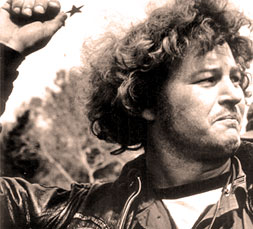
Winter Soldier
(Producer: Vietnam Veterans Against the War, 1972, 96 min)
Former US soldiers who served in Vietnam testify for three days in Detroit about their war experiences.
Link to Winter Soldier website.

Winter Soldier: Iraq & Afghanistan
(Producer: Iraq Veterans Against the War, 2008, 65 min)
In spring 2008, inspired by the Vietnam-era Winter Soldier hearings, Iraq Veterans Against the War gathered outside Washington, DC and testified to atrocities they witnessed while deployed in the occupations of Afghanistan and Iraq. This video captures the powerful words and images of this historic event.
Well-publicized cases of American brutality like the Abu Ghraib prison scandal and the massacre of an entire Iraqi family in the city of Haditha are not isolated incidents, they are the logical consequences of U.S. war policy.
The film preserves and honors the participants’ courageous contributions in order to ensure that people around the world remember their stories and struggle. This 1 hour edited video features 13 veterans from the three days of testimony given by over 70 men and women who served in Iraq and Afghanistan. The footage addresses such issues as the U.S. military’s callous disregard for civilian life, the torture of detainees, the culture of racism that’s inherent in a military occupation, gender discrimination, and the health crisis facing today's veterans.
The presentation of this video at a labor film festival is intended to connect members of the audience with their role as employers of the people giving the testimony, who are workers in the military system. As taxpayers we are all responsible for what is done in our name. It is absurd to expect employers in the US to respect the needs of their employees, when they know that these same employees, as US taxpayers, are willing to ignore the inhumane working conditions of the people who risk their lives to protect their freedom and liberty.
Link to the Iraq Veterans Against the War webpage on Winter Soldier: Iraq & Afghanistan.
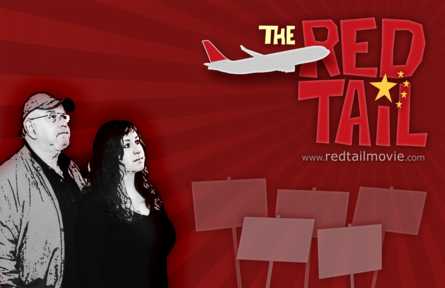
The Red Tail
(Directors: Dawn Mikkelson & Melissa Koch, 2009, 86 min)
Sneak Preview in celebration of International Workers Day
On August 19, 2005 Roy Koch, along with 4,400 airline mechanics, custodians, and cleaners, went on strike against Northwest Airlines, the 4th largest airline in the world. Northwest, otherwise known as The Red Tail by its employees, wanted to lay off 53% of their union and outsource their jobs. What followed was a 444 day strike that would end with 4,000 union members out of work, including Roy. Instead of being left in the wake of this “losing battle,” Roy and his daughter Melissa (Director of The Red Tail) decide to follow Roy’s outsourced job to China. The film interweaves Roy and Melissa’s search for connection in China with the premeditated downfall of Northwest Airlines, which is subsumed by Delta Airlines. This downfall is a vibrant example of the dangers of our current economic system, which serves to make the rich richer even as the middle and working classes disappear.
The Red Tail offers fascinating insight and access into the inner workings the global airline industry, raising questions about the safety of U.S. airlines amidst flawed FAA oversight in international maintenance bases, and a new perspective on globalization and the lives that hang in the balance. It also raises compelling questions about how this economic system could change from the bottom up. The Red Tail is a tribute to the dedicated and hardworking people of the world.
Link to The Red Tail
website.
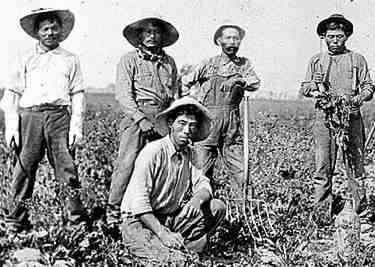
Golden Lands, Working Hands
(Director: Fred Glass, 1999, 27 min)
California labor history classic in 10 parts. Segments on farmworkers and teachers organizing will be screened.
Link to California Federation of Teachers webpage on Golden Lands, Working Hands.

My Friends At The Farm
(Producer: Farm Sanctuary, 2006, 19 min)
Corporate food industry treatment of billions of animals raised on factory farms is contrasted with the peaceful lives of sanctuary animals. This documentary interviews young school children as they express their reactions to the treatment of factory and sanctuary animals. Viewers are encouraged to think about the consequences of their food choices.
Link to Farm Sanctuary webpage for My Friends At The Farm.
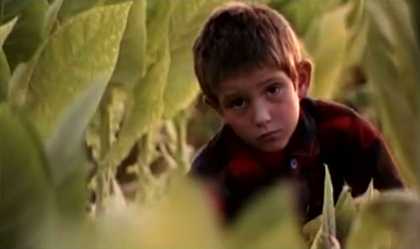
Tackling Child Labour In Agriculture
(Producer: International Labour Organization, 2007, 9 min)
Worldwide, an estimated 70 per cent of working children can be found in the agricultural sector. These 132 million girls and boys aged 5-14 are helping to produce the food and beverages we consume. Their labor is used in crops such as cereals, cocoa, coffee, fruit, sugar, palm oil, rice, tea, tobacco and vegetables. They also work in livestock raising and herding, and in the production of other agricultural materials such as cotton and cottonseed.
Link to International Labour Organization webpage on Tackling Child Labour In Agriculture.
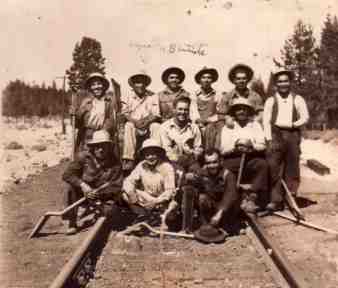
Bracero Stories
(Producer: Patrick Mullins, 2008, 56 min)
The Bracero Program (1942-1964) is often cited as a model for a contemporary “guest worker” program. This documentary explores the personal stories of five former braceros and, through their direct experiences, puts a human face on the concept of foreign “guest worker.”
Link to Cherry Lane Productions page on Bracero Stories.

Burger King Exposed
(Producer: Brave New Films, 2009, 4 min)
Fast food chain is owned by Goldman Sachs. CEO is paid 360 times more than the workers.
Link to Brave New Films blog on Burger King Exposed.

Growing Awareness
(Director: Jade Ajani, 2007, 103 min)
This feature-length documentary from the Pacific Northwest examines Community-Supported Agriculture (CSA). Consumers buy shares of a local farm’s harvest, receiving a weekly supply of fresh food throughout the growing season. Small-scale organic farmers and CSA members from around the South Puget Sound region share their views on the present reality of small-scale farming and its impact on farmers, fasrmworkers, consumers, the local community, and the environment. With issues of sustainability and food security coming to the fore throughout North America and beyond, the film illustrates the importance of local small farms to a community and critiques the emergence of an organic-industrial complex as well as the modern corporate-controlled and government-subsidized global food system.
Link to Laser Cave Films webpage on Growing Awareness.
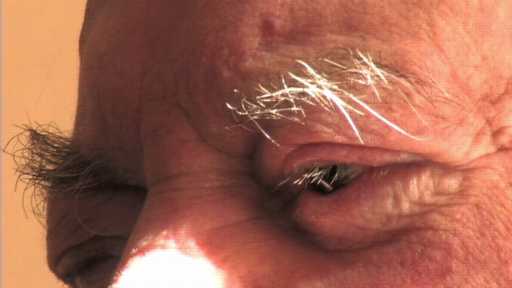
Learning to Bend Steel
(Filmmaker: Alex Johnston, 2009, 10 min)
Legendary labor activist, historian, and folklorist Archie Green’s early days as an aspiring shipwright on the dry docks of 1940’s San Francisco. The film is a meditation on the nature of work and a chronicle of Green’s early embrace of workers’ culture.
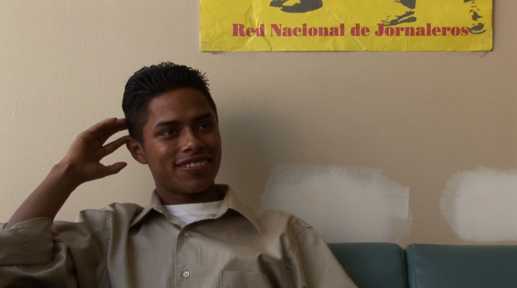
Dos Americas: The Reconstruction of New Orleans
(Filmmaker: David Zlutnick, 2008, 47 min)
The growing Latino population of post-Katrina New Orleans contributes to the rebuilding of the city but faces racial tensions, wage theft, police brutality, and exploitation on the job, with some relief offered by community organizing.
Link to Upheaval Productions webpage on Dos Americas.
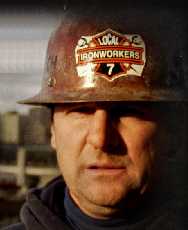
The Greening of Southie
(Director: Ian Cheney, 2008, 72 min)
What happens when you’re asked to build the city of tomorrow...today? Set on the storied streets of South Boston, The Greening of Southie is a feature documentary about Boston’s first residential green building, and the men and women who set out to construct it. From wheatboard cabinetry to recycled steel, bamboo flooring to dual-flush toilets, The Macallen Building is something different—a leader in the emerging field of environmentally friendly design. But green building has its challenges, and the jobsite has its skeptics. And when things start to go wrong, a young developer has to keep the project from unraveling.
Funny and poignant, The Greening of Southie is a story of bold ideas, new environmentalists, and the future of urban America that will be the centerpiece of Earth Week in the Union Halls, a campaign that will bring the film—and the national discussion about green jobs—to workers around the country.
Link to Bullfrog Films webpage on The Greening of Southie.
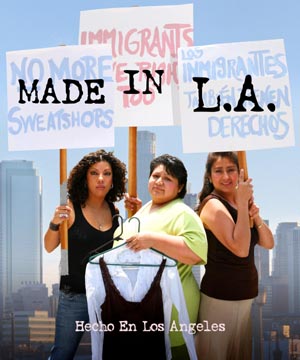
Made In LA
(Producers: Almudena Carracedo & Robert Bahar, 2007, 70 min)
The remarkable story of three Latina immigrants working in Los Angeles garment sweatshops as they embark on a three-year odyssey to win basic labor protections from trendy clothing retailer Forever 21. In intimate observational style, the film reveals the impact of the struggle on each woman’s life as they are gradually transformed by the experience. Compelling, humorous, deeply human, Made in L.A. is a story about immigration, the power of unity, and the courage it takes to find your voice.
Link to Made In LA website.
Lost and Found
(Filmmakers: UCLA students, 2008, 5 min)
Tales of UCLA students who struggle with the documentation issue lead to discussion of the mobilization to secure passage of the DREAM Act in Congress.
|